AG Biogenic Engineering Materials
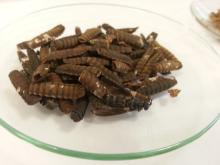
We, the Biogenic Materials Chemistry group, are focussing our research on building blocks derived from biogenic materials. These building blocks are processed and modified in such a way that we obtain a mechanically robust structural material that could potentially be useful for construction applications. Understanding the properties of these composites at the nano, micro and macro level also enables the further development of these innovative new materials. For example, the biogenic building blocks can be combined by additional chemical synthesis so that they respond mechanically to an external stimulus such as light.
As an overall vision, we aim to implement materials in living systems so that the future building can work symbiotically with living nature.
Further information on the working group: https://www.stegbauerlab.de/
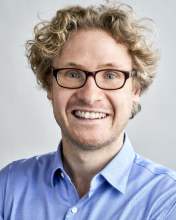
Prof. Dr rer. nat. Linus Stegbauer
Prof. Dr Linus Stegbauer is currently a Junior Professor at the Institute of Nanoscale and Biobased Materials at the Technische Universität Bergakademie Freiberg.
He was previously an FCI-funded Principal Investigator at the Institute of Interfacial Process Engineering and Plasma Technology (IGVP) at the University of Stuttgart.
He was a postdoctoral fellow in the Department of Materials Science and Engineering at Northwestern University, Evanston, USA, where he used synchrotron X-ray techniques to investigate the role of mineral and organic structure and organisation and their effect on the mechanics of mollusc teeth as part of a DFG fellowship.
He completed his PhD ("Summa cum laude") in Inorganic Chemistry at the Ludwig-Maximilians-Universität München (LMU) in conjunction with the Max Planck Institute for Solid State Research, where he worked on porous crystalline polymers, Covalent Organic Frameworks, as a scholarship holder of the Chemical Industry Fund and produced six new networks. He extended their application to environmental applications such as water storage and photocatalytic hydrogen production. His dissertation was awarded the LMU departmental prize ("Römer-Preis") in 2016.
He completed his M. Sc. in Chemistry at LMU and the University of Oxford with honours in 2011 and his B. Sc. in Chemistry at the Technical University of Munich in 2009. He has presented his work at over 45 conferences and published more than 30 papers in peer-reviewed journals.
Email: linus [dot] stegbauer [at] esm [dot] tu-freiberg [dot] de (linus[dot]stegbauer[at]esm[dot]tu-freiberg[dot]de)
Google Scholar: https://scholar.google.de/citations?hl=de&user=jl4smD8AAAAJ
ORCID: https://orcid.org/0000-0003-1823-7949
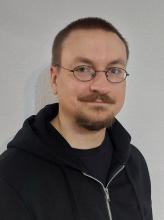
Dr. Hendryk Würfel
Dr. Hendryk Würfel is currently employed at the Institute for Nanoscale and Bio-based Materials at the Technical University Bergakademie Freiberg.
Previously, he was a postdoctoral researcher at Friedrich Schiller University in Jena in Prof. Thomas Heinze's research group, where he worked on pectin hydrazide as a platform for the modular structure and property design of bio-based and sustainable materials and functional polymers (PekSEMF) as part of a funding program run by the Agency for Renewable Resources (FACH).
He also works at Chemnitz University of Technology as a postdoctoral researcher with Prof. Stefan Spange on the synthesis and characterization of reactive dicarbonyl compounds in combination with structural analysis of hybrid and composite materials.
He obtained his doctorate in 2012 under the supervision of PD. Dr. Dieter Weiß at Friedrich Schiller University in Jena on the topic: “Synthesis and characterization of new, functional fluorophores for biochemical applications.”
He completed his diploma thesis, which dealt with the optimization of firefly luciferin synthesis, in 2009.
He has published more than 20 articles in peer-reviewed journals to date.
E-Mail: Hendryk [dot] Wuerfel [at] esm [dot] tu-freiberg [dot] de (Hendryk[dot]Wuerfel[at]esm[dot]tu-freiberg[dot]de)
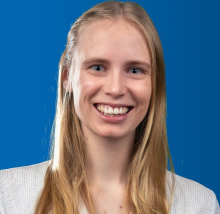
Nina Oehlsen, M.Sc.
Nina Oehlsen completed her physics degree at the Georg-August-University of Göttingen with a master's thesis on tip failure in atom probe tomography. As part of her doctorate at the Institute of Interfacial Engineering and Plasma Technology at the University of Stuttgart (in cooperation with the Fraunhofer Institute for Interfacial Engineering and Biotechnology) and later at TUBAF, she is working on the bioinspired synthesis of nanocomposites and the optimisation of their mechanical properties. Her work is funded by a Liebig Scholarship from the Chemical Industry Fund.
E-mail: nina [dot] oehlsen [at] doktorand [dot] tu-freiberg [dot] de
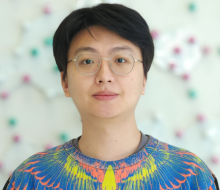
Jialin Tian, M. Sc.
Jialin Tian completed his master's degree in materials chemistry at the University of Jena. During this time, he was involved in two internships to develop amino-functionalised agarose hydrogels for the controlled release of lignin. His master's thesis was dedicated to photocatalytic hydrogen production from water. He is currently conducting research at the TU Bergakademie Freiberg in the field of nanoscale bio-based materials. His work is funded by a scholarship from the Sächsische Aufbaubank (SAB).
E-mail: jialin [dot] tian [at] doktorand [dot] tu-freiberg [dot] de
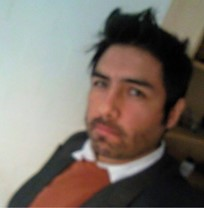
Enver-Felix Loayza-Mora
Felix began his studies at the Universidad Católica de Santa María, where he obtained his degree as an engineer in the food industry. After several years of professional experience in engineering, he decided to study natural sciences and also completed a Bachelor's degree in Molecular Biotechnology at the Faculty of Technology at Bielefeld University. At the same time, he worked in technology development in the food industry in Bielefeld. He then completed a Master's degree specialising in industrial biotechnology at the TU Berlin. The topic of his master's thesis focussed on high-throughput technologies and automation.
E-mail: Enver-Felix [dot] Loayza-Mora [at] doktorand [dot] tu-freiberg [dot] de
Are you interested in us and our work? We are always looking for new employees.
Postdoctoral positions
Postdoctoral research can be carried out within the diverse framework of research topics and disciplines covered by the group (chemistry, biology, physics, materials science), including organic synthesis of small highly functionalized molecules, nanoparticle@gel chemistry and living materials research. Various funding organisations can finance a postdoctoral position, such as the Alexander von Humboldt Foundation, the DAAD or the EU (Marie Curie Fellowship). Please note that the processing of all scholarships takes some time. If you are interested, please contact Linus.
PhD positions
Applications for doctoral positions from many disciplines (nanotechnology, materials science and engineering, chemistry, applied natural sciences, physics, biotechnology) are always welcome. Even if we do not currently have any vacancies for doctoral students, there may be the possibility of third-party funding. Funding for international applicants is available from the DAAD and other funding sources. For further information, please contact Linus.
Study, diploma, master and bachelor theses
Topics for study, diploma, master and bachelor theses from many disciplines (nanotechnology, materials science and engineering, chemistry, applied natural sciences) are available, dealing with the exploration of novel synthesis strategies for structural nanoscale materials, their characterisation and applications. Please contact and meet Linus for more information on the projects currently available